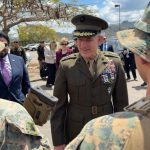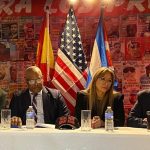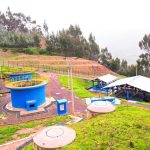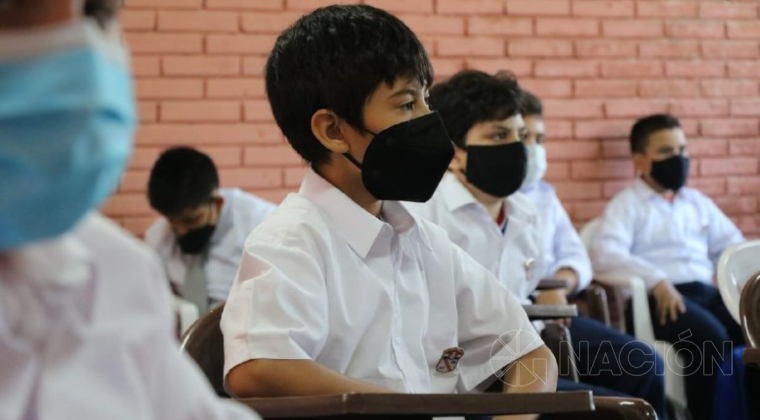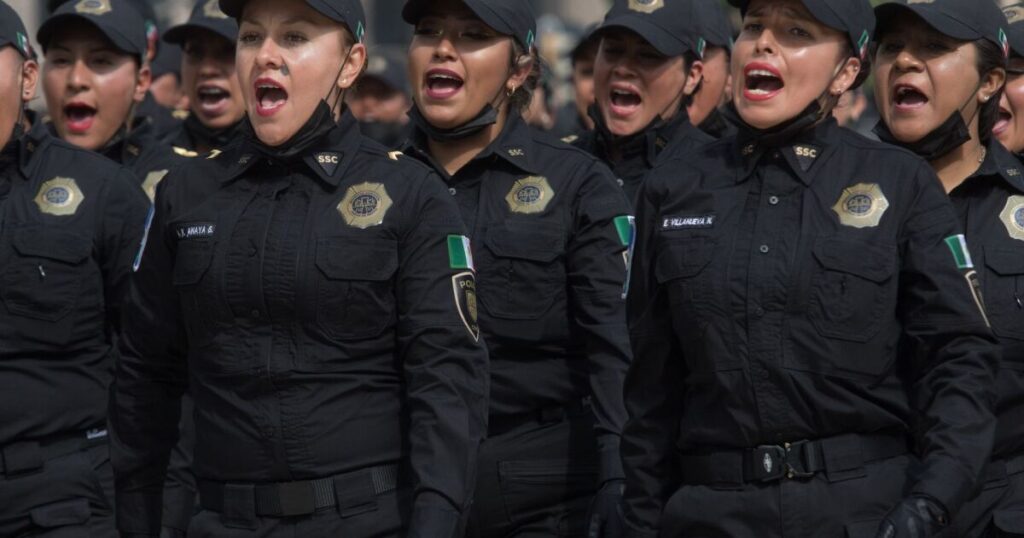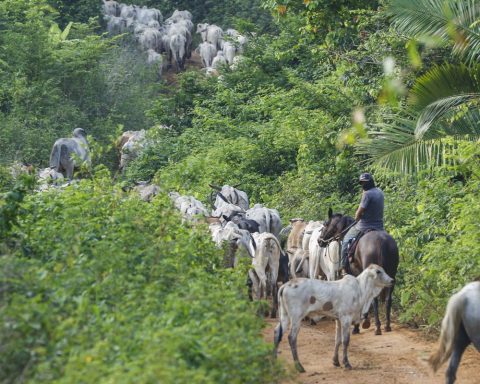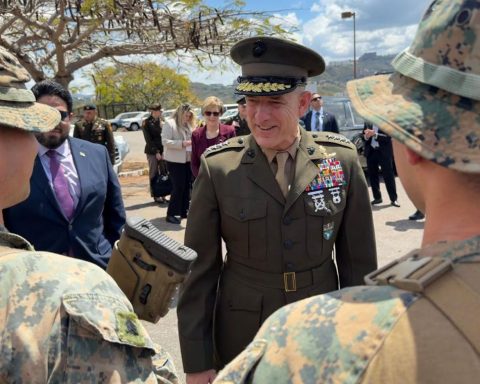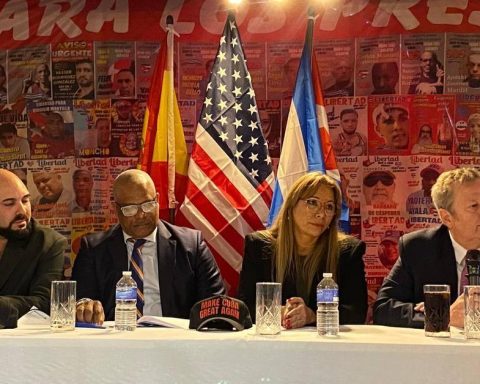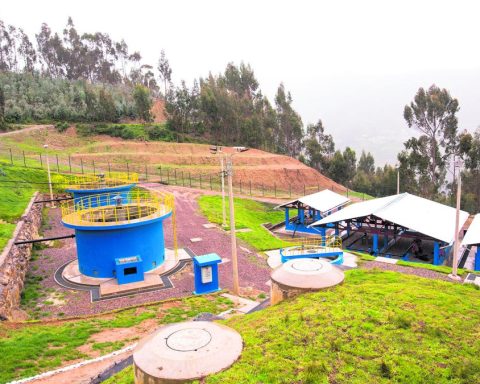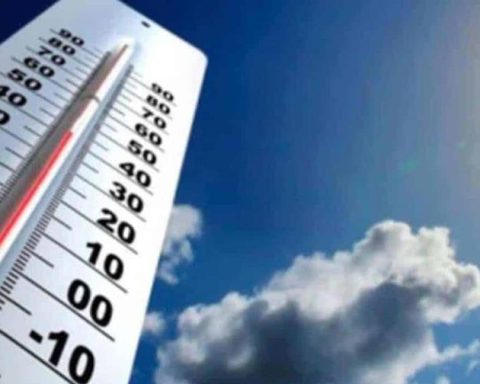This week will be marked by the conversations that will take place in Houston within the framework of the CERAWeek conference, one of the most important in the energy sector worldwide, and which will be attended by the President of the Republic, Iván Duque.
(President Iván Duque rejects Russia’s invasion of Ukraine).
In dialogue with Portafolio, the president explains the main messages that the Government will bring to the event regarding the country’s efforts in its energy transition and climate change, but also comments that he hopes to address in his meeting with the President of the United States, Joe Biden, and his position on the conflict in Ukraineamong others.
(Duque formalizes an increase of $30,000 per month for Solidarity Income).
What are the messages you bring to CERAWeek?
Colombia arrives with four great messages. The first, that the country today is leading the energy transition in Latin America. We received 28 megawatts of non-conventional renewable energy when the Government began, and we are going to leave more than 2,500 megawatts at the end of this year. That makes us the most attractive country for investors in these energies.
Second: Colombia, today, has launched the Green Hydrogen Route, and will be launching the first electrolyser in two weeks. With this plan he wants to attract investors. Third, the country is also showing that Ecopetrol is making strategic investments outside and inside our territory to continue improving hydrocarbon reserves and has achieved the best performance in its history.
And, the fourth is that we are making a unique bet for the wind power offshore. We want the attention of all investors in this energy market to focus on Colombia, when it comes to Latin America.
A few days ago Ecopetrol reported the highest profit in its history, and some voices propose the end of oil exploration. What do you tell those candidates about the future of this activity?
The sector of hydrocarbons continues to be the main source of taxes in Colombiaof royalties, one of the sectors that attracts more foreign direct investment and an industry that affects the public foreign exchange market.
Colombia cannot lose its position, nor its self-sufficiency, much less its hydrocarbon reserves and, on the contrary, we have to continue producing to export as much as possible, and also reduce internal consumption with the energy transition. This allows us to have more resources to finance the development of the country.
Several goals in energy transition have already been exceeded. How will your government leave the country in renewable energies, in the generation of clean energies and in electric mobility?
The two most important energy transition goals that we set for ourselves, we met. We are talking about more than 1,500 megawatts, and we are going to leave more than 2,500 megawatts of installed capacity in non-conventional renewables. Outside of that, there are an additional 4,500 megawatts of self-generation, to be developed in the next year and a half.
Second, we launched the Clean Mobility Law and we have already exceeded the goal of having more than 6,000 electric vehicles running in the country. And Colombia has managed to consolidate the electric public transport fleet and largest cargo in Latin America.
These goals have been achieved, but we have also closed a very good part of the electrification gap, bringing single-family solar panel solutions, which is a milestone.
In addition, we had the first energy storage auction derived from non-conventional renewables, and that already positions us as a leader in this type of auction as well.
Faced with offshore wind farms and the development of new sources such as hydrogen, what is the balance with a view to August 7?
The balance is to leave an established hydrogen route, to have more than six or seven companies with projects, to have the first electrolyser running on green hydrogen and at least three or four additional electrolyzers.
In terms of offshore wind energy, we now have all the incentives for the private sector to arrive, and we hope to have at least two or three projects that are in the design phase and the start of execution, so that in the next 12 months can materialize.
Copper is the so-called energy transition metal. How do you plan to end your management in the policy on this mineral?
Colombia has a mining policy that, in my opinion, is positive. We have a promotion of the sector. We hope to be able to combine all the environmental measures, those for the opening and closing of the mine, as well as community management measures, all in accordance with the greatest benefit for society.
This implies that we achieve that the mining debate is not captured by ideologies or by populism or by demagoguery or by politicking, and we allow these to be decisions based on science, but with the possibility, once authorized, of anticipating resources to the communities within of the area of influence of the projects.
One of the great projects.
One of the large power generation projects is Hidroituango. Will you manage to inaugurate this mega-work?
The work does not have to be inaugurated so much because I can inaugurate it, but because there is a schedule, the project establishes that the first turbine must be installed before August, and we hope that in later weeks we will have the second.
Last week you met with Jeff Bezos. What advances and commitments does that visit leave and how can Colombia benefit from your financial support?
Jeff Bezos is one of the world’s greatest environmental philanthropists. He created the ‘Bezos Earth Fund’, and he is accompanying us in various conservation and protection initiatives, and he is very interested in contribute so that countries like ours can develop a voluntary market for carbon credits, that allows Colombia to have resources that help to conserve and that more rural families are oriented towards the payment for environmental services and towards the conservation of nature.
And, apart from that, it is strongly supporting the declaration of 30% of the territory as a protected area and, especially, it wants to accompany the policies regarding protected areas in the so-called marine waters.
In your book ‘El Camino a Cero’, you stated: “the environmental cause has been the cause of life”. What are your main achievements in environmental protection and climate change?
Colombia achieved, for the first time, a Climate Action Law, unanimously approved; second, we carried out the Environmental Crimes Law; third, we launched the Artemisa Campaign to fight against deforestation; fourth, we will leave 30% of the Colombian territory declared as a protected area; fifth, we launched the Biodivercities initiative, with the World Economic Forum, so that cities develop policies that allow us to contribute effectively to the protection of biodiversity, and, in addition, Colombia joined a pact with the countries Ecuador, Costa Rica and Panama to have the largest marine protected area in the entire world.
We are protecting and recovering a million corals for our reefs, and we are planting 180 million trees, which will be registered by August 7 of this year.
These are some of the issues that, in an integral way, Colombia leads, and I would also add that we were the first country in Latin America to develop a circular economy policy.
What are the main issues you are going to discuss with President Joe Biden in your meeting?
Within the framework of the celebration of 200 years of diplomatic relations between our countries, we are going to talk about the issues of investment, trade, the fight against transnational crime, the defense of democracy, attention to migrants ; We are going to talk about the climate action policies that we are sharing and, of course, we will also address the issues of humanitarian support, and condemns, through multilateralism, this unjustified attack by Russia on Ukraine.
Does your government have specific requests for the United States? In other words, in what areas do you think the relationship should be promoted?
There are many issues we are working on. Today we have an agenda on climate change. President Biden launched his Build Back Better World or B3W initiative, which is his initiative to promote investment in the Western Hemisphere. And I think that as a result of the tensions that are also appearing in Asia and that are appearing in Europe, it is clearer that the United States has to seek to have much more production capacity in the Americas and, of course, Colombia wants to be one of them. of the leading countries in the implementation of this B3W strategy.
What is Colombia’s position regarding the conflict in Ukraine? Has any sanction been decided?
Colombia, since 2014, supported the resolution of the United Nations General Assembly on the integrality of the territory of Ukraine. Colombia condemns this violation of international law, this violation of Ukraine’s sovereignty and this unnecessary bloodbath that has occurred due to an unjustified, disproportionate attack and, above all, an attack contrary to international law. Colombia condemns it, within multilateralism, and condemns it in its conception of foreign policy.
We, within the framework of the sanctions that are being adopted by various countries, we are evaluating which ones Colombia will apply, but, without a doubt, the country will join this action of the international community, where sanctions are a rejection mechanism, but also a genuine mechanism to demand that this bloodbath stop and that Russia withdraw its troops from Ukraine .
The main impact on the country due to this conflict is through the prices of ‘commodities’. What measures or plans does the government have to counter these possible effects?
I believe that Colombia has taken two measures, which are very important: one of a social nature, which was to increase the beneficiaries of solidarity income by one million, also raising their income by more than 20% to be able, obviously, to face the situation of increased of prices of some products; that is oriented towards the most vulnerable families.
We also launched a decree, where we are leaving in zero tariff on about 162 products and, third, we are diversifying markets to access products that were previously produced by Russia, in such a way that we are not hit, although we know that the situation that this conflict is going to generate is an increase in logistics costs.
We have to use these compensation tools and, at the same time, assume that it is our moral duty, as a nation, to diversify the markets for our exports, and also look for other countries that have the capacity to produce inputs, like the ones we used to buy from them. to Russia.
BRIEFCASE








